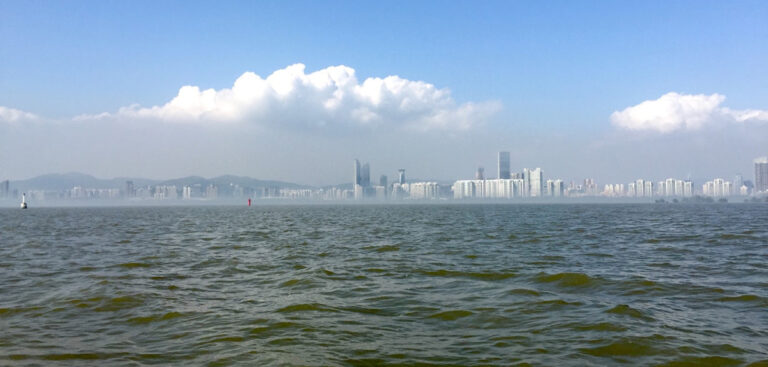Reducing the combustion of fossil fuel can improve water quality on China’s coast, according to researchers at the University of Hong Kong.
Burning fossil fuels is associated with global warming, but the research led by MPhil student Yu Yan Yin and supervised by Dr Benoit Thibodeau from the Department of Earth Sciences and the Swire Institute of Marine Science at the University of Hong Kong studies the effects of nitrogen oxide in China’s seas.
The researchers used Intergovernmental Panel on Climate Change projected trends in atmospheric emissions of NOX and a biogeochemical model to estimate the impact in the South China Sea, East China Sea, the Yellow Sea and the Bohai Sea.
They found that although atmospheric deposition is not as important as riverine nitrogen input, it can still fuel up to 15% of the total amount of organic matter found at the bottom of the ocean.
This increases the area of hypoxia, a level of oxygenation that is too low for most organisms to sustain their normal activities.
Reducing emissions can significantly reduce hypoxic zones and the South China Sea is the most sensitive area to nitrogen input, according to the researchers.
Yau said, “I hope our study brings more attention to the potential benefit of reducing fossil fuel burning on human and ecosystem health, but also on local economic activities like fisheries, which are severely affected by hypoxia.”
Thibodeau added, “While we understand that sewage and nutrient input from the Pearl River drive most of the hypoxia in the Greater Bay Area, we observe low levels of oxygen in regions that are not directly under the influence of these sources. Thus, it is important to investigate the impact of atmospheric deposition more locally.”



